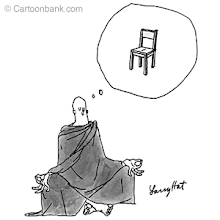William Kunstler was one of the most famous lawyers of the 20th Century. He fought for civil rights with Martin Luther King Jr., and represented the Chicago 8 who faced jail for protesting the Vietnam war. When inmates took over Attica prison, or Native Americans stood up to the federal government at Wounded Knee, they asked Kunstler to be their lawyer. To his daughters, Emily and Sarah, he was a hero from legend, who stood at the center of everything important that had ever happened.
But the girls weren't around for their fathers glory days. Born in the late 1970s when Kunstler was almost 60, the father they knew publicly kissed the cheek of a Mafia client and condoned assassinations he viewed as political. He represented an Islamic fundamentalist charged with murdering a rabbi, a terrorist accused of bombing the World Trade Center, and a teenager charged with participating in a near-fatal gang rape.
By the time Kunstler died in 1995, his teenage daughters thought he had stopped standing for anything worth fighting for. Once idolized, he had become an embattled, if still dazzling, loner.
In Disturbing the Universe: Radical Lawyer William Kunstler, filmmakers Emily and Sarah Kunstler investigate their father's transformation from a middle-class family man into a person of courage who risked everything for his beliefs. In 1960, Kunstler, a married 40-year-old lawyer handling estate and divorce cases left his safe, suburban life and traveled south to join the civil rights struggle.
Within a few years, Kunstler was catapulted into international fame when he defended the Chicago 8, protesters charged with inciting riots outside the 1968 Democratic National Convention. He defied the judge and put the Vietnam War and American racism on trial. But the trial changed Kunstler. He had once believed that the law an instrument of justice. Now he saw a legal system that enabled those in power to exercise social control and at all costs, to perpetuate themselves.
Kunstler witnessed the power and the costs first hand at Attica Prison when he was called in as an observer for the inmates during the 1971 rebellion. The audience sees it, too, though devastating archival images that show what happened when state troopers stormed the prison, covered the yard with tear gas, and opened fire on the prisoners, killing 29 inmates and nine hostages and wounding hundreds. With clear eyes, the film addresses both the viciousness of the state and the charges that Kunstler did more harm than good by hardening the prisoners resolve and giving them unrealistic expectations of amnesty.
Throughout the film, in historical footage and interviews, Kunstlers critics, defenders, and clients talk about how one man made a difference. Some still hate him, some credit him with saving their lives and freedom, others acknowledge that he irrevocably and improbably changed their view of race and politics.
A string of sensational trials and stunning victories fed Kunstlers belief that because he was skilled, passionate, and right, he could convince anyone. But while that made him a great lawyer, it did not make him an easy father. His daughters pleaded with him not to represent Yusef Salaam, a black 15 year old accused of participating in a savage attack on a female jogger in Central Park.
The media, captivated by the case, ran headlines calling the accused monsters. We see this monster years later, as a gentle and introspective adult who, it turns out, had been innocent all along, and was exonerated by DNA evidence after six and a half years in prison. Kunstler was right: It was racism and a biased legal system that had failed.
"I suspect," says Kunstler talking to a crowd during the Chicago 8 trial, "that more people have gone to their deaths through a legal system than through all the illegalities in the history of man: 6 million people in Europe during the Third Reich. Legal. Sacco and Vanzetti. Legal. The hundreds of great trials throughout the South where black men were condemned to death. All legal. Jesus. Legal. Socrates. Legal. ...All tyrants learn that it is far better to do this thing through some semblance of legality than to do it without that pretense."
And there is the heart of the film: Kunstler inspires by choosing justice over law and order, by defending pariahs because pariahs are most in need of defense, and by doing it all while grandstanding for the media. In the end, his daughters reconcile Kunstlers uncomfortably complex parts into an all too human, all too familiar, whole.
A documentary by Emily Kunstler & Sarah Kunstler, 2009.
http://www.imdb.com/name/nm2527562/
http://www.imdb.com/name/nm2527239/
EXTERNAL REVIEWS
http://www.imdb.com/title/tt1074194/e...






No comments:
Post a Comment